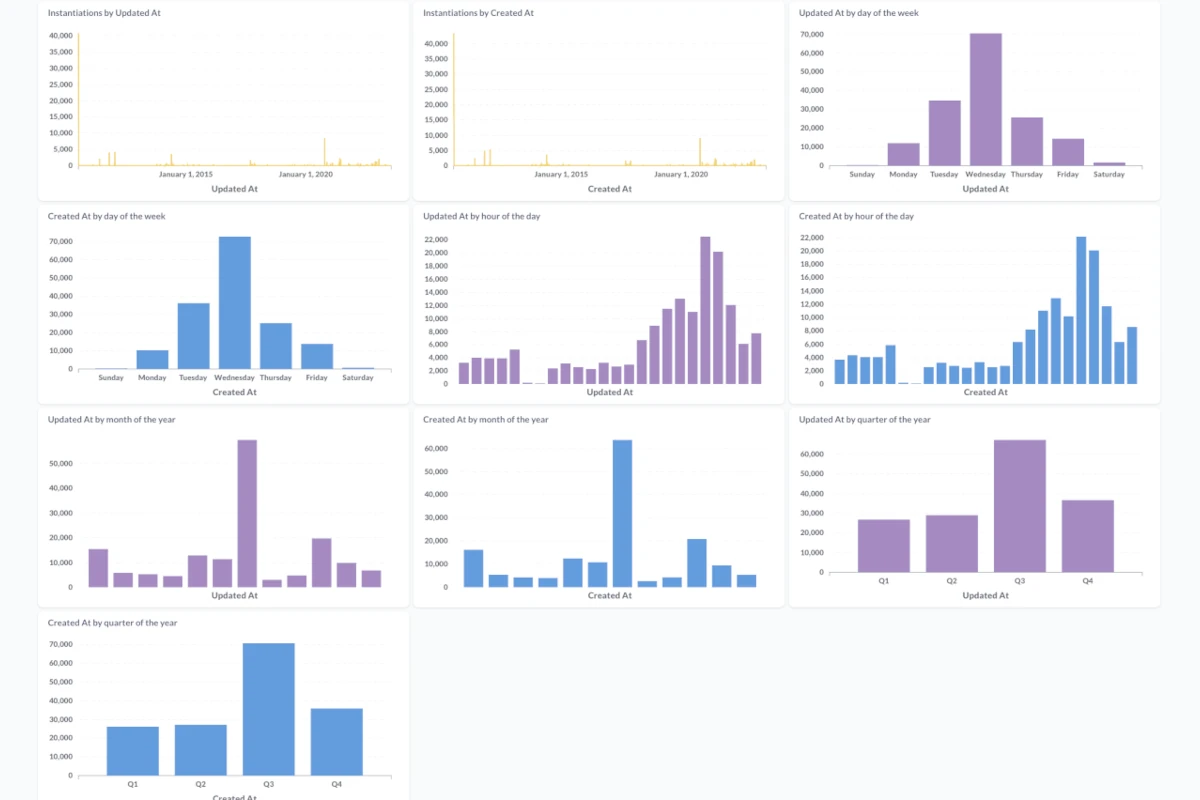
Fintech
Unlocking Scale by Revamping Data Systems at Orum
Orum engaged Def Method to build out a data infrastructure that enabled reporting immediacy that matches their payments API product.
Services Provided
Data Engineering, DevOps, Product Roadmapping
Product Type
Technologies Used
Self-Service Business Intelligence Solution
Snowflake, Metabase, Hevo Data, Terraform, AWS
Product Type
Self-Service Business Intelligence Solution
Technologies Used
Snowflake, Metabase, Hevo Data, Terraform, AWS
Project Highlights
With a Snowflake data warehouse aggregating data from multiple sources, Orum now has a single source of truth that teams can trust
Non-technical teams are able to explore data and create dashboards independently with Metabase, enabling them to streamline daily operations and move more quickly
Business intelligence reporting is self-serve: it's no longer a drain on Orum's engineering resources, allowing engineers to focus on driving the core business forward
Get Started with Data Warehousing
Download our Free Guide
About
Orum's vision is to power a better financial system where everyone has the freedom to build to their potential. They offer the simplest API integration for instant payouts, enabling companies to get up and running with payouts across all major payment rails without costly bank integrations or prolonged compliance. As Orum scaled, they discovered their business intelligence solution was not scaling with them, so they brought in Def Method to help design and implement a new solution that unlocked data exploration across the company and freed up their engineers to focus on expanding and improving their core API products.

Challenge
Top companies in the Fintech space must maintain rapid growth over a wide array of complex technical domains — compliance, peer-to-peer payments, and the ever-shifting crypto ecosystem to name just a few. In this environment, it's critical for teams to have access to product data in order to facilitate day-to-day operations, share key metrics with customers, and make data-driven decisions.
Orum was facing significant challenges with data accessibility – reports within their existing business intelligence solution, Databricks, were slow and often broken, and required engineering support to fix. Non-technical teams were unable to build their own reports and dashboards, and they were hesitant to ask for them, because they knew it would pull engineers away from top priorities. BI reporting had become a bottleneck that slowed progress down considerably, impacting the company's flexibility and ability to foster a data-driven culture.
Solution
Knowing they needed to focus on building their core products yet still address the data access issues, Orum enlisted a Def Method team of one product manager and two developers to assist in re-architecting and migrating to new tools. Our team was granted a high level autonomy to validate a proposed plan and implement end-to-end delivery of a new BI solution.
Def Method's engineers set up Snowflake as Orum's data warehouse and configured Hevo Data, an extract, load, and transform (ELT) tool, to regularly transfer data from the source databases of eight different microservices. We then configured Metabase as Orum’s new BI tool and rebuilt all of the critical reports from Databricks, improving their data quality by ensuring sources and queried data matched.
This solution also solved the problem of non-technical teams being unable to explore data independently, as Metabase can be used without having to use SQL or other programming languages to retrieve data. To facilitate company-wide adoption of Metabase, Def Method's product manager met with internal Orum teams to teach them how to create reports and dashboards. During one presentation, a stakeholder proclaimed we were “making [their] dreams come true.”
Results
The Def Method team worked largely independently to build a complex system and deliver it in just two months – eight weeks ahead of its expected timeframe. After the launch, time to load a report was decreased by 80%, and Orum saves 25 hours per week due to manual reporting processes being streamlined and automated. Data required to report to clients and identify fraud, previously difficult to access, is now aggregated in Snowflake and readily available across the organization. Orum teams are self-serving data in Metabase, and engineers are no longer being pulled away from other priorities to fix reports and dashboards.
